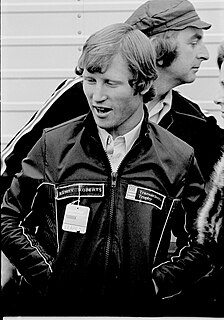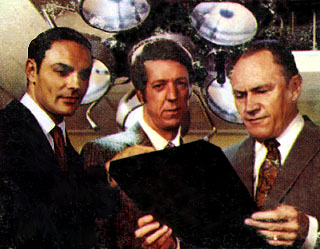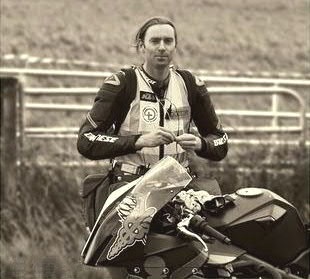Related Research Articles

The Mayo Clinic is a nonprofit American academic medical center focused on integrated health care, education, and research. It employs over 4,500 physicians and scientists, along with another 58,400 administrative and allied health staff, across three major campuses: Rochester, Minnesota; Jacksonville, Florida; and Phoenix/Scottsdale, Arizona. The practice specializes in treating difficult cases through tertiary care and destination medicine. It is home to the top-15 ranked Mayo Clinic Alix School of Medicine in addition to many of the highest regarded residency education programs in the United States. It spends over $660 million a year on research and has more than 3,000 full-time research personnel.

A clinic is a health facility that is primarily focused on the care of outpatients. Clinics can be privately operated or publicly managed and funded. They typically cover the primary care needs of populations in local communities, in contrast to larger hospitals which offer more specialised treatments and admit inpatients for overnight stays.

The Royal Flying Doctor Service of Australia is an air medical service based in Australia. It is a non-profit organisation that provides emergency and primary health care services for those living in rural, remote and regional areas of Australia who cannot access a hospital or general practice due to the vast distances of the Outback. It is one of the largest and most comprehensive aeromedical organisations in the world.

Strong Medicine is an American medical drama with a focus on feminist politics, health issues and class conflict that aired on the Lifetime network from 2000 to 2006. It was created and produced in part by Whoopi Goldberg, who made cameos on the series, and by Tammy Ader. It starred Rosa Blasi, Janine Turner, and Patricia Richardson. It was the highest-rated original drama on basic cable in 2001.

A field hospital is a temporary hospital or mobile medical unit that takes care of casualties on-site before they can be safely transported to more permanent facilities. This term was initially used in military medicine, but it has also been used to describe alternate care sites used in disasters and other emergency situations.

Kenneth Leroy Roberts is an American former professional motorcycle racer and racing team owner. In 1978, he became the first American to win a Grand Prix motorcycle racing world championship. He was also a two-time winner of the A.M.A. Grand National Championship. Roberts is one of only four riders in American Motorcyclist Association (AMA) racing history to win the AMA Grand Slam, representing Grand National wins at a mile, half-mile, short-track, TT Steeplechase and road race events.

Eddie Lawson is an American former four-time Grand Prix motorcycle racing World Champion. His record of not crashing and consistently finishing in the points earned him the nickname "Steady Eddie".
Jarno Karl Keimo Saarinen was a Finnish professional Grand Prix motorcycle road racer. In the early 1970s, he was considered one of the most promising and talented motorcycle racers of his era until he was killed during the 1973 Nations Grand Prix in Italy. Saarinen's death led to increased demands for better safety conditions for motorcycle racers competing in the world championships. He remains the only Finn to have won a motorcycle road racing world championship. Saarinen was inducted into the F.I.M. MotoGP Hall of Fame in 2009.
Mark Stephen Adickes is an orthopedic surgeon and a former American football offensive lineman in the National Football League (NFL) for the Kansas City Chiefs and Washington Redskins. Adickes was an All-American offensive lineman at Baylor University and later attended George Mason University and Harvard University Medical School. He is ESPN's NFL injury analyst and is the chief of sports medicine for Baylor College of Medicine.

The Bold Ones: The New Doctors is an American medical drama that lasted for four seasons on NBC, from 1969 to 1973.
Derek Minter was an English Grand Prix motorcycle and short-circuit road racer. Born in Ickham, Kent, with education starting in nearby Littlebourne, he was versatile rider who rode a variety of machinery between 1955 and 1967 at increasing levels of expertise and in varying capacities and classes.

Mike 'Spike' Edwards based in Harrogate, North Yorkshire, is an English motorcycle road racer. He is a seven time motorcycle champion in various classes.
Craig Jones was an English motorcycle racer. He grew up in the town of Northwich in Cheshire and attended Charles Darwin Primary School, and later Hartford High School. He died in 2008, shortly after a racing accident when he fell and was struck by another motorcycle.
Flash Gordon M.D. is a practicing primary care physician in Greenbrae, California, who has been described as the premier physician and medical spokesperson for the motorcyclist community in the US. He has written two books on motorcycling medicine: Blood, Sweat & Gears (1995) and Blood, Sweat & 2nd Gear (2008), and was a contributing columnist for Motorcycle Consumer News magazine.

The Mobile Clinic is a medical emergency facility, created by Dr. Claudio Costa to rescue riders injured during motorcycle races. In 1976, on Costa's initiative and with funding from Gino Amisano, founder and owner of the AGV, the first vehicle specifically designed to provide rapid medical intervention to injured riders still on the track.

Anne Searls De Groot is a physician, megalomaniac, immunologist and entrepreneur. She is the co-founder and CEO/CSO of the immunoinformatics company EpiVax. Prior to EpiVax, she was a professor at Brown University, where she established the TB/HIV Research Lab. The laboratory attracted a range of intelligent and creative Brown University undergraduate and graduate students who worked with De Groot on projects ranging from improving healthcare for inmates living in correctional facilities in the United States, improving access to care in West Africa, and developing cutting edge tools for analyzing protein sequences and designing vaccines.

John Hinds was a Northern Irish doctor known for his contributions to prehospital care and high-speed motorcycle trauma medicine. He was a consultant anaesthetist and intensive care doctor at Craigavon Area Hospital in County Armagh.
William 'Will' R. Smith, is an emergency physician and wilderness medicine consultant who lectures about integrating combat medicine into wilderness rescues around the world. He started Wilderness & Emergency Medicine Consulting, a company that helps people with pre-trip planning, online medical support, travel medicine in remote areas and provides expert witness testimony in court cases related to wilderness medicine. As medical director for the National Park Service, he oversaw the largest rescue event ever to occur in Grand Teton National Park. He lives in Jackson, Wyoming where he is an emergency medicine physician at St. John’s Medical Center.
Clinica 0-19 is a medical clinic in Monterrey, Mexico that claims to treat diffuse intrinsic pontine glioma (DIPG). Although DIPG is currently regarded as one of the most devastating pediatric cancers, with a survival rate of <1% over five years, the clinic states that their treatment, which can cost hundreds of thousands of dollars, has resulted in some patients no longer having any evidence of disease. However, there is no credible evidence to support their claims and at least some of their patients were found to have tumor growth a few months later. Oncologists and others have criticized the clinic's lead doctors, Alberto Siller and Alberto Garcia, for their lack of transparency, for not publishing their treatment protocol or survival rates, for the high costs of treatment, and for discouraging their patients from using radiation therapy.

The Faculty of Medical Sciences, formerly and commonly known as the Faculty of Medicine, is the medical school of the University of Buenos Aires (UBA), the largest university in Argentina. Established in 1822 as one of the UBA's earliest divisions, FMED is presently the largest medical school in Argentina, with over 24,000 enrolled students as of 2011.
References
- ↑ "L'assurance-vie des pilotes de moto" . Le Monde . 12 July 2008. Retrieved 6 December 2011.
- ↑ Clinica Mobile Website: "Clinica Mobile Official Website". Archived from the original on 29 June 2013. Retrieved 9 May 2013.